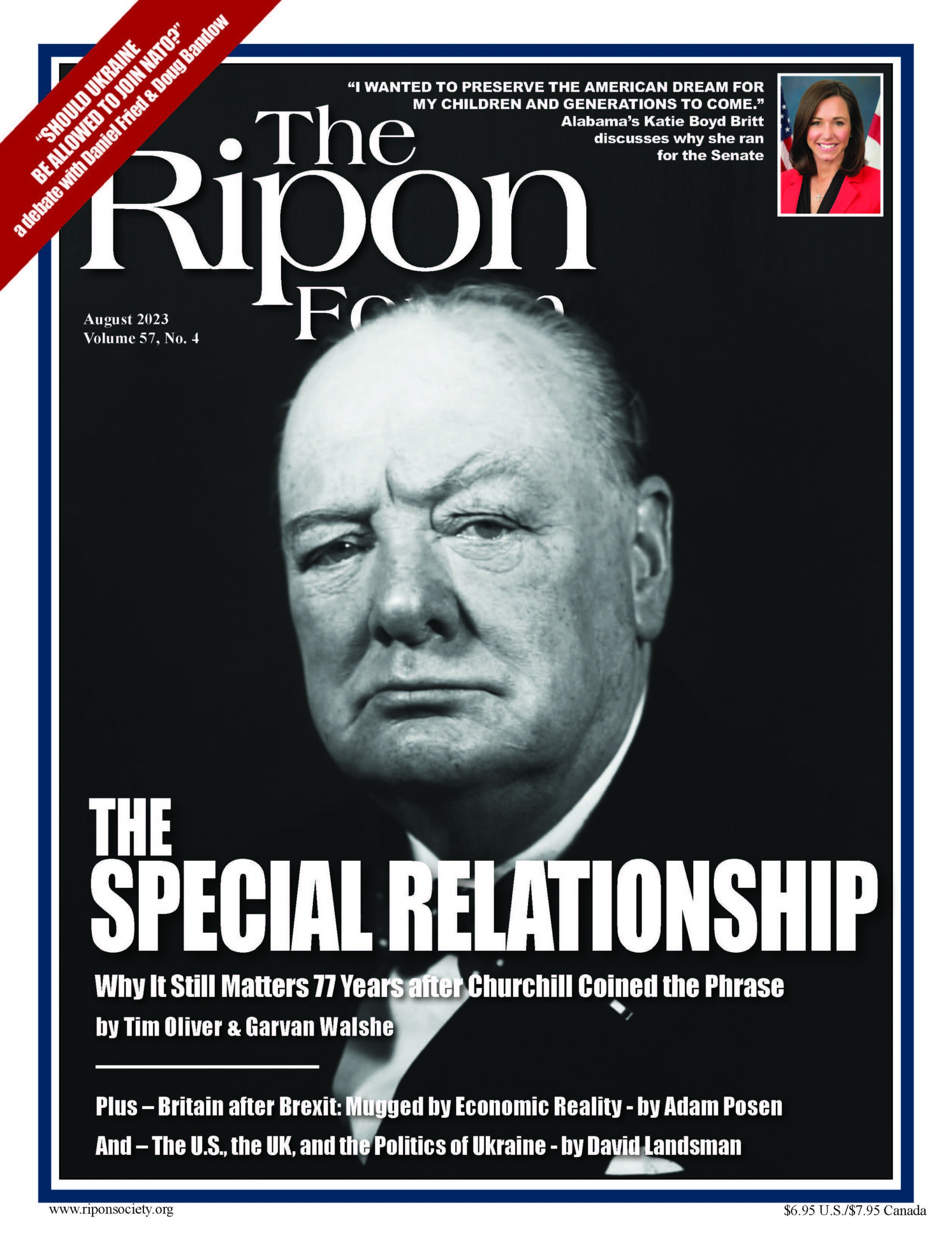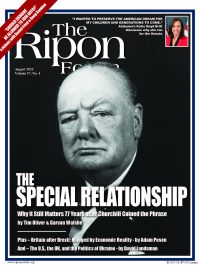 In a summer that saw Britain’s Prime Minister visit the White House and America’s President visit 10 Downing Street just over one month later, the latest edition of The Ripon Forum examines The Special Relationship between the United States and the United Kingdom and its renewed importance in an increasingly volatile world.
In a summer that saw Britain’s Prime Minister visit the White House and America’s President visit 10 Downing Street just over one month later, the latest edition of The Ripon Forum examines The Special Relationship between the United States and the United Kingdom and its renewed importance in an increasingly volatile world.
Leading our coverage are two astute observers of the UK political scene. Tim Oliver is Director of Studies for the Institute for Diplomacy and International Governance at Loughborough University in London, while Garvan Walshe heads up communications for the European Policy Centre in Brussels and is a former policy advisor to the British Conservative Party. In our lead essay, the pair examine why The Special Relationship still matters 77 years after Winston Churchill coined the phrase. They also lay out “six highly unlikely things” would have to happen for the partnership between both countries to end.
In another essay, Adam Posen, the President of the Peterson Institute for International Economics, takes an in-depth look at impact that Brexit has had on the UK economy. Posen — who was honored by Queen Elizabeth II in 2014 for his services to British economic policy — finds that leaving the European Union has not proven to be the economic boon that Brexit’s supporters had pledged it would be.
Tori Smith of the American Action Forum examines another aspect of U.S.-UK economic policy — trade — and finds that, while rhetoric by the leaders of both nations to strengthen the trade relations has been positive, real progress will not occur without some bold moves, which she lays out, as well.
At a time when the war in Ukraine has galvanized the Western alliance, veteran British diplomat David Landsman examines the politics of the issue, the levels of military commitment, and whether public support is likely to continue if the conflict persists. In other essays focusing on another global challenge, Matt Brazil of the Jamestown Foundation writes about the “Dawn of the Not So Golden Era of UK-China Relations,” and Lisa Curtis of the Center for a New American Security assesses the new military alliance between the U.S., UK, and Australia.
Ripon Society fellows Danielle Wagner and Fynn Haagen provide a “Brief History of The Special Relationship,” while former U.S. Ambassador to Poland Daniel Fried and the Cato Institute’s Doug Bandow square off in a debate over whether Ukraine should be allowed to join NATO.
And in our latest Ripon Profile, first-term Senator Katie Boyd Britt of Alabama discusses her new job on Capitol Hill and what Republicans should do to reclaim their majority in the Senate next year.
As always, we hope you enjoy this latest edition of The Ripon Forum, and encourage you to contact us with any questions or comments you may have.
Lou Zickar
Editor of The Ripon Forum
louzickar@clu.ccw.mybluehost.me




